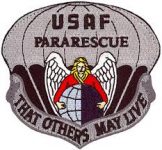Exodus 34:10-13 is a warning of preparation for the First Word. Before these verses are verses 6 and 7, which are equal to what is traditionally called the First Commandment in Exodus 20:2 and Deuteronomy 5:6. However, neither Exodus 20:2, Exodus 34:6-7, or Deuteronomy 5:6 are commandments or the First Word. All these verses are a statement of fact, telling us who YaHVaH is by identifying Himself by Name.
 The First Word is “For you shall not prostrate yourselves to another god, for YaHVaH Qanna is His Name, He is a jealous El.” Exodus 34:13. This is similar to the First and Third Commandments in Exodus 20:3,5 and Deuteronomy 5:7,9; mentioned in the Origins chapter. These verses read, “You shall not recognize to you gods of others in My presence.” and “You shall not prostrate yourselves to them and not worship them, for I am YaHVaH, your Elohiym, a jealous El, who visits the sin of the father upon children and upon the thirds and upon the fourths, for My enemies.” Traditionally, this is all referred to as Commandment number Two, but as mentioned above, the traditional Number One is not really a commandment, only a statement of fact.
The First Word is “For you shall not prostrate yourselves to another god, for YaHVaH Qanna is His Name, He is a jealous El.” Exodus 34:13. This is similar to the First and Third Commandments in Exodus 20:3,5 and Deuteronomy 5:7,9; mentioned in the Origins chapter. These verses read, “You shall not recognize to you gods of others in My presence.” and “You shall not prostrate yourselves to them and not worship them, for I am YaHVaH, your Elohiym, a jealous El, who visits the sin of the father upon children and upon the thirds and upon the fourths, for My enemies.” Traditionally, this is all referred to as Commandment number Two, but as mentioned above, the traditional Number One is not really a commandment, only a statement of fact.
You shall not is a direct command of what YaHVaH wants us not to do. In all of the above, we are not to prostrate ourselves to anyone other than YaHVaH. The KJV says “bow down” in Exodus 20 and Deuteronomy 5, and “worship” in Exodus 34. In the Hebrew, it is the same word in all three verses: teesh’tachaveh (see Strong’s 7812). This word comes from the root word shachah, which means to bow down. Gesenius explains the Hithpalel version of this word and gives four alternative definitions: to prostrate oneself, to worship a deity, to do homage, or to submit oneself. (Ges. pg. 813). Grammatically, this word is in the 2nd person, plural imperfect form of the Hithpalel version. Meaning, the definition is: you shall prostrate yourselves. Because the Hebrew word Lo’ precedes this word, it then becomes: You shall not prostrate yourselves.
‘Acher is the Hebrew word for another (see Strong’s 312) and would refer to anything you make a god, whether it be of the other nations or some thing, such as money, work, cars, or TV. Qanna means jealous (see Strong’s 7065) and YaHVaH specifies it as part of His Name in Exodus 34:14. As part of His Name, qanna implies it is a natural attribute of YaHVaH to be jealous of those who serve Him and He is angered instantaneously when they serve any other god.
The above explains the First Word and the First and Third Commandments, but what does Yeshua say is the First Commandment? “You shall love YaHVaH your Elohiym with all your heart, and with all your soul, and with all your mind. This is [the] first and great commandment.” Matthew 22:37-38; and “That first of all the commandments [is] Hear, O Yisrael, YaHVaH our Elohiym, YaHVaH is One. And you shall love YaHVaH your Elohiym with all your heart, and with all your soul, and with all your mind, and with all your strength. This [is the] first commandment.” Mark 12:29-30.
Hold on a minute, Yeshua’s words are not listed in Exodus 20, Exodus 34, or Deuteronomy 5. Oops, does that mean what is traditionally called the First Commandment is not the First Commandment? Correct. The First and Great Commandment, mentioned by Yeshua, is actually found in Deuteronomy 6:4-5. These two verses are in the Shema, a spoken daily mitzvah said by most Yehudiy (Jews). Yeshua also adds one portion to this commandment not found in Deuteronomy 6: the mind, referring to the intellect. This is due to the high emphasis put on the intellect by society at this time (and still today).
The First Word (Ex. 34:14), the First and Third Commandments (Ex. 20:3,5 and De. 5:7,9), the First and Second traditional Commandments (Ex. 20:2-5 and De. 5:6-9), and Yeshua’s First and Great Commandment (De. 6:4,5 and Mark 12:29-30) are all related. They all point to YaHVaH as the One True Elohiym to be worshipped in everything we do.
Return to Table of Contents
Or continue on to Number 2







